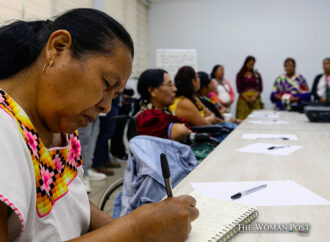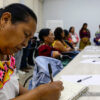For generations, we have seen grandmothers in charge of the kitchen, and mothers with all the responsibilities of the home and their children, but despite what we believe today, care has not always been given as we conceive it, but we need a change.
Nineteenth-century European theories on eugenics and hygiene opened the way to think about child care as a starting point for the progress of society: the more healthy children, the more development. They began to talk about food, education, health, and environments relevant to children. Suddenly, the family became the central nucleus, and the standardization of care in general and the maintenance of children’s health, life, and well-being, in particular, fell on it.
The above is what was culturally and socially installed in our psyche: Men work to support the family and women take care of children, the grandparents and dependents, and, of course, the home. However, times have changed but this situation has not changed with the incorporation of women into the world of work. Even today many people are amazed if a man is dedicated to housework.
Scientists, politicians, and religious intellectuals back then promoted “education for motherhood”, which was one of the starting points to create the symbolic virtues of women and their role in society and in family configurations: breastfeeding, domestic service, care, tenderness, love, etcetera, etcetera.
Care was assumed to a greater extent by women: mothers, nurses, midwives, community mothers, grandmothers, aunts, friends, sisters, teachers, wet nurses, and daughters.
This unpaid work may include caring for children or elderly relatives, cleaning the home, or spending four hours each day fetching water to meet their family’s basic needs depending on the context and region. It can consist of all of the above and much more.
That a woman does not have the right to public spaces, to the world of work, and to express herself not only impoverishes the country but also denies women the opportunity to work for their communities, and contribute scientifically and intellectually to society.
To say some data, In Spain, according to the OIT, 94.18% of people who work part-time are women. That is, for every man with a contract of this type there are 16 women.
And according to UN Women, In 2020, school and preschool closures required 672 billion hours of additional unpaid childcare globally.
During the pandemic
According to a survey promoted by the Women and Science Unit of the Ministry of Science and Innovation, around 50% of female researchers were responsible for cleaning the home and 43.8% assumed care responsibilities during confinement. For their part, 20% of men were in charge of cleaning and 18.3% of men assumed care responsibilities.
Globally, women are estimated to have lost $800 billion in income during 2020 due to the pandemic and, despite an uptick, their labor market participation is projected to be lower in 2022 than before the pandemic. pandemic (50.8%, compared to 51.8% in 2019)
The 2020 school and preschool closures required 672 billion extra hours of unpaid child care worldwide. Assuming the gender gap in care work remained the same as it was before the pandemic, women would have taken on 512 billion of those hours.
Nearly 60% of countries and territories did not take any measure to support increases in unpaid care work during the pandemic.
In Spain, women between 45 and 64 years of age who live in the same home as the person cared for is the main profile of the caregiver of dependent and elderly people
According to the ILO, during the second half of 2020 women’s wages have been reduced by almost 15% (compared to 11.3% for men). This is due to the loss of employment and the decrease in the number of hours worked.
More than 80% of single-parent households in Spain
Co-responsibility as a solution
If we want to achieve real equality for men and women, it must be a priority to break the stereotype that links care with women. For this, we must bet on co-responsibility within households. It is about the equal distribution between men and women of domestic tasks and family responsibilities. This includes the organization, care, and education of dependent persons (elders, boys, and girls) within the home.
Doing so would mean that women and girls would have more time to work, study or find other ways to contribute to their homes and communities. Time-saving resources such as a communal water fountain, oven, or wheelbarrow can make a huge difference in their lives, as can a fair division of labor. Sometimes it’s not just about divvying up chores between husbands and wives, and sons and daughters, but about providing opportunities. By doing so, whether through infrastructure or by valuing the work that women and girls do. It is time to recognize the contribution to society of those who care for other people, as well as our homes, our businesses, our economy, and our well-being. Governments and large companies must join this recognition.
























Leave a Comment
Your email address will not be published. Required fields are marked with *